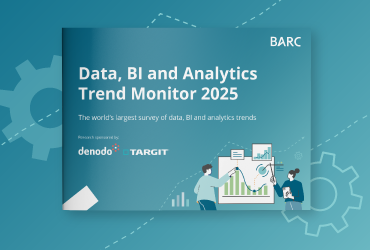What Is Data Stewardship?
Data stewardship is the practice of managing and overseeing an organization's data assets with an eye towards maintaining accuracy, integrity, security, and compliance. It involves setting data governance policies to preserve data quality and facilitating collaboration between stakeholders to maximize the value of data.
Why Is Data Stewardship Important?
Effective data stewardship is crucial for organizations that rely on data for decision-making, compliance, and operational efficiency. Key benefits include:
- Maintaining Data Quality: Reduces errors, inconsistencies, and redundancies
- Enhancing Data Security: Protects sensitive information from unauthorized access
- Facilitating Regulatory Compliance: Promotes adherence to data privacy laws such as GDPR and CCPA
- Optimizing Data Usability: Improves accessibility and trust in enterprise data.
- Improving Data Governance: Aligns data policies with business goals and industry standards
Key Responsibilities of a Data Steward
- Data Governance Enforcement: Implementing and monitoring data policies and best practices
- Data Quality Management: Keeping data accurate, consistent, and complete
- Metadata Management: Maintaining documentation on data definitions, sources, and lineage.
- Compliance Monitoring: Keeping data handling aligned with legal and regulatory requirements
- Stakeholder Collaboration: Working with IT, data analysts, and business units to optimize data use
- Data Security Oversight: Enforcing access controls and encryption protocols
How Data Stewardship Works
Data stewardship functions as a key component of a broader data governance framework. The process typically involves:
- Defining Data Standards: Establishing rules for data collection, storage, and processing
- Data Auditing and Monitoring: Conducting regular assessments to identify data anomalies
- Data Lifecycle Management: Overseeing data from creation to archiving or deletion
- Training and Awareness: Educating employees on best practices for data handling
Applications of Data Stewardship
- Healthcare: Maintaining patient data accuracy and compliance with HIPAA regulations
- Finance: Protecting sensitive financial records and maintaining data integrity
- E-Commerce: Managing customer data for personalized marketing and analytics
- Government: Facilitating open data initiatives while securing data
- Artificial Intelligence (AI): Providing high-quality training datasets for machine learning models
Benefits of Data Stewardship
- Improved Data Trustworthiness: Basing business decisions on reliable data.
- Reduced Compliance Risks: Minimizes penalties and legal challenges associated with data misuse
- Enhanced Operational Efficiency: Streamlines data access and management across departments
- Better Data-Driven Insights: Enables organizations to make informed, strategic decisions
- Strengthened Data Security: Prevents data breaches and unauthorized access
Challenges in Data Stewardship
- Data Siloes: Enabling data consistency across multiple departments and systems
- Managing Large Volumes of Data: Scaling stewardship efforts for big data environments
- Cultural Resistance: Encouraging organizational buy-in for data governance initiatives
- Keeping Up with Regulations: Adapting to evolving global data privacy laws
Future Trends in Data Stewardship
- AI-Driven Data Stewardship: Automating data quality checks and governance enforcement
- Blockchain for Data Integrity: Leveraging decentralized ledgers for tamper-proof records
- Self-Service Data Stewardship: Empowering employees with user-friendly data management tools
Real-Time Data Governance: Implementing dynamic policies for streaming data



